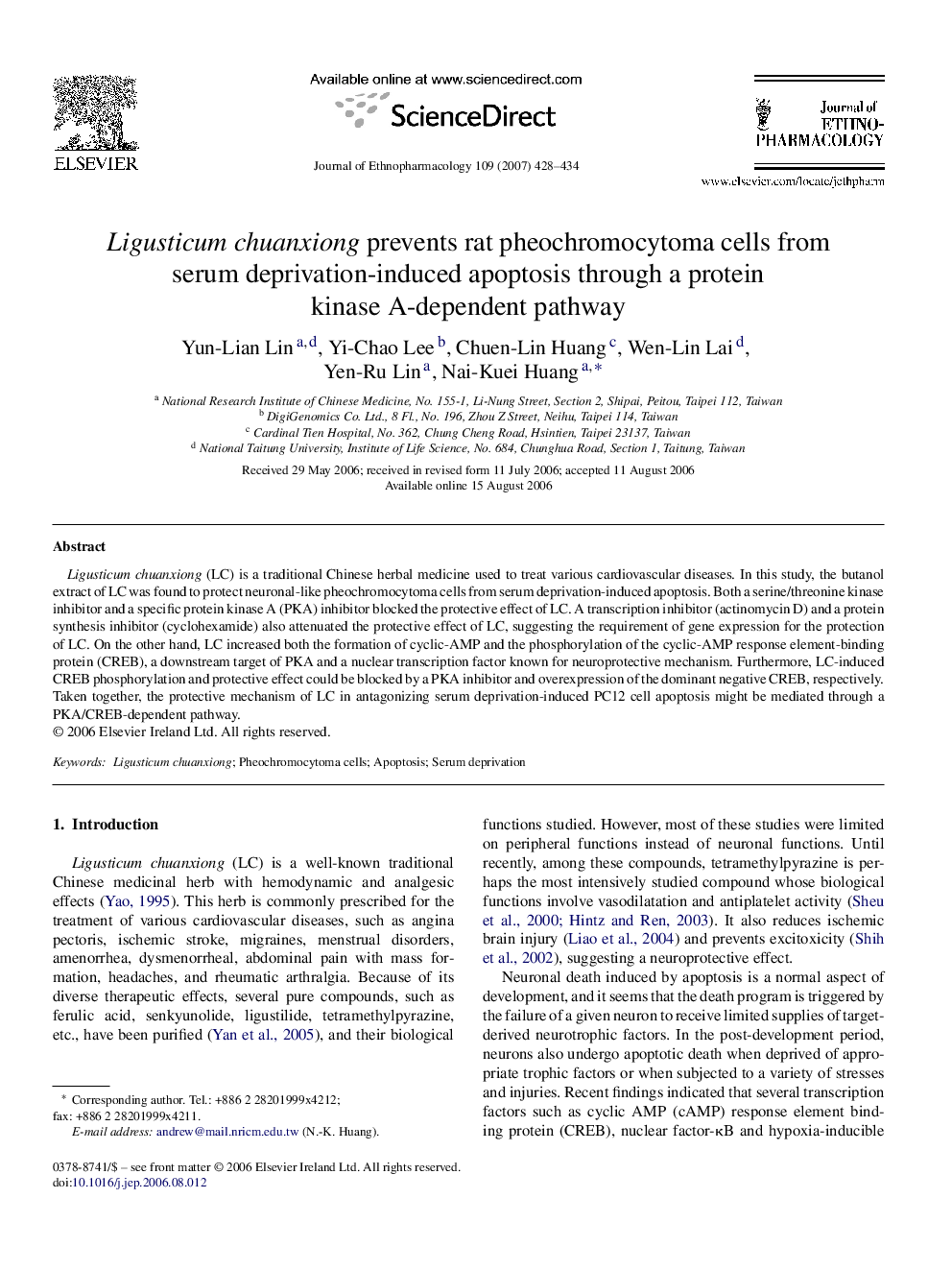| Article ID | Journal | Published Year | Pages | File Type |
|---|---|---|---|---|
| 2548409 | Journal of Ethnopharmacology | 2007 | 7 Pages |
Ligusticum chuanxiong (LC) is a traditional Chinese herbal medicine used to treat various cardiovascular diseases. In this study, the butanol extract of LC was found to protect neuronal-like pheochromocytoma cells from serum deprivation-induced apoptosis. Both a serine/threonine kinase inhibitor and a specific protein kinase A (PKA) inhibitor blocked the protective effect of LC. A transcription inhibitor (actinomycin D) and a protein synthesis inhibitor (cyclohexamide) also attenuated the protective effect of LC, suggesting the requirement of gene expression for the protection of LC. On the other hand, LC increased both the formation of cyclic-AMP and the phosphorylation of the cyclic-AMP response element-binding protein (CREB), a downstream target of PKA and a nuclear transcription factor known for neuroprotective mechanism. Furthermore, LC-induced CREB phosphorylation and protective effect could be blocked by a PKA inhibitor and overexpression of the dominant negative CREB, respectively. Taken together, the protective mechanism of LC in antagonizing serum deprivation-induced PC12 cell apoptosis might be mediated through a PKA/CREB-dependent pathway.
